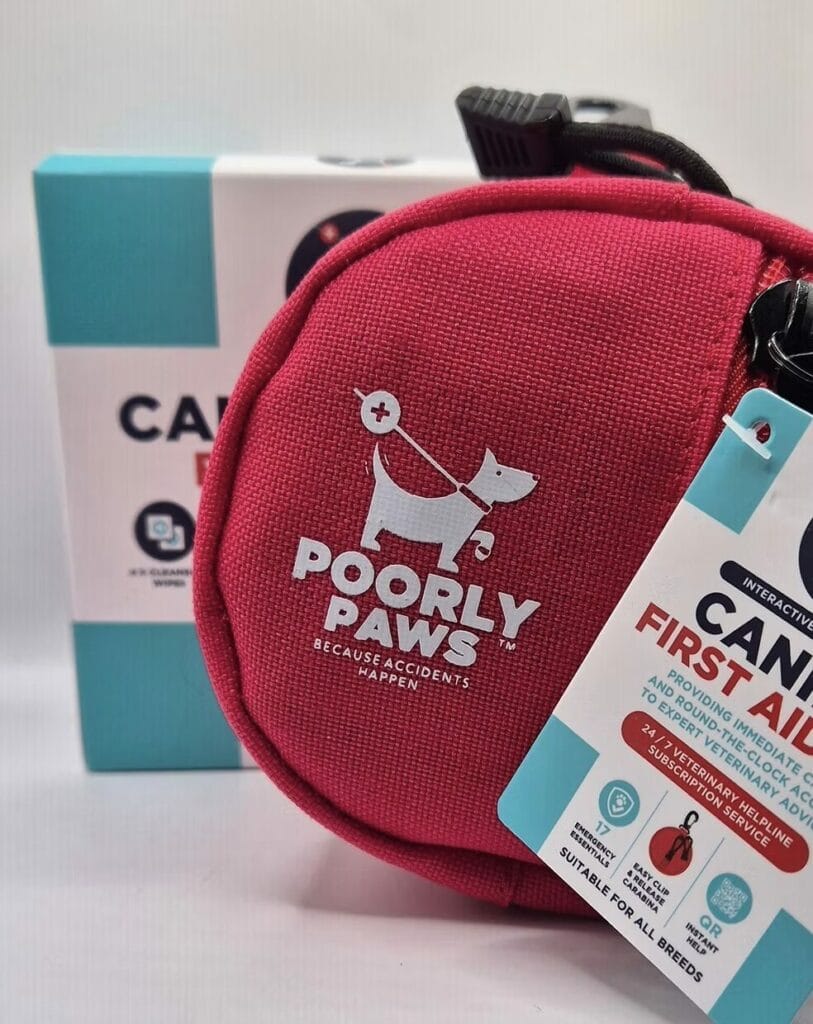
At Kingsley Tails, we believe that every dog deserves the best care possible including a diet that keeps them safe and healthy. While it’s tempting to share your food with your furry friend, some human foods can be highly toxic to dogs, even in small amounts.
Here’s your go-to guide on toxic foods for dogs, their dangers, and how to keep your pup safe.
1. Chocolate
Why It’s Dangerous:
Chocolate contains theobromine and caffeine, both of which are toxic to dogs. Dark chocolate and baking chocolate have the highest theobromine levels, making them the most dangerous.
Signs of Chocolate Poisoning:
Kingsley Tails Tip: Keep all types of chocolate, including cocoa powder and white chocolate, far away from your dog.
2. Grapes & Raisins
Why It’s Dangerous:
Even a small amount of grapes or raisins can cause sudden kidney failure in dogs. The exact toxic substance is unknown, but it affects all breeds.
Signs of Grape/Raisin Poisoning:
Kingsley Tails Tip: Avoid feeding your dog anything that may contain grapes or raisins, such as trail mixes, cereals, or fruitcakes.
3. Onions & Garlic
Why It’s Dangerous:
Onions, garlic, chives, and leeks (all members of the allium family) can damage red blood cells, leading to anaemia.
Signs of Onion/Garlic Toxicity:
Kingsley Tails Tip: Onion and garlic powder are just as toxic as fresh onions and garlic, so be mindful of seasonings in table scraps.
4. Xylitol (Artificial Sweetener)
Why It’s Dangerous:
Found in sugar-free gum, candies, peanut butter, and baked goods, xylitol causes a rapid release of insulin, leading to dangerously low blood sugar and potential liver failure.
Signs of Xylitol Poisoning:
Kingsley Tails Tip: Always check ingredient labels before giving your dog any human food. If it says ‘sugar-free’, avoid it!
5. Avocados
Why It’s Dangerous:
Avocados contain persin, a toxin that can cause vomiting and diarrhoea in dogs. While the flesh has lower levels, the pit, skin, and leaves contain the highest concentrations.
Kingsley Tails Tip: Keep avocados, guacamole, and avocado-based products away from your pup.
6. Macadamia Nuts
Why It’s Dangerous:
Macadamia nuts can cause severe weakness, tremors, vomiting, and hyperthermia in dogs, even in small amounts.
Kingsley Tails Tip: Many nuts are high in fat and hard for dogs to digest. It’s safest to avoid nuts altogether.
7. Alcohol
Why It’s Dangerous:
Even small amounts of alcohol can cause ethanol poisoning in dogs, leading to disorientation, vomiting, and even coma.
Signs of Alcohol Poisoning:
Kingsley Tails Tip: Never leave alcoholic beverages or food containing alcohol unattended.
8. Caffeine
Why It’s Dangerous:
Caffeine, found in coffee, tea, energy drinks, and soda, can overstimulate a dog’s nervous system, causing serious health issues.
Signs of Caffeine Poisoning:
Kingsley Tails Tip: Keep coffee cups, tea bags, and caffeinated drinks well out of reach.
9. Yeast Dough
Why It’s Dangerous:
Raw yeast dough expands in a dog’s stomach, leading to bloating and severe pain. The fermentation process also produces alcohol, increasing the risk of ethanol poisoning.
Kingsley Tails Tip: If you love to bake, make sure raw dough is kept far away from curious noses!
10. Corn on the Cob
Why It’s Dangerous:
While plain corn is safe, the cob itself can be a major choking hazard or cause an intestinal blockage, often requiring surgery.
Kingsley Tails Tip: If you want to share corn with your pup, remove it from the cob first!
What to Do If Your Dog Eats Something Toxic
If you suspect your dog has eaten a toxic food, act immediately:
Final Thoughts: Keeping Your Dog’s Diet Safe
The best way to protect your pup is to stick to dog-friendly foods and avoid sharing your meals. A well-balanced diet designed for dogs ensures they get all the nutrients they need without the risks.

“Because being prepared makes all the difference.”
No results available
Join the Tails Times, for all the regal dog care updates and Kingsley Tails events.
You have successfully joined our subscriber list.